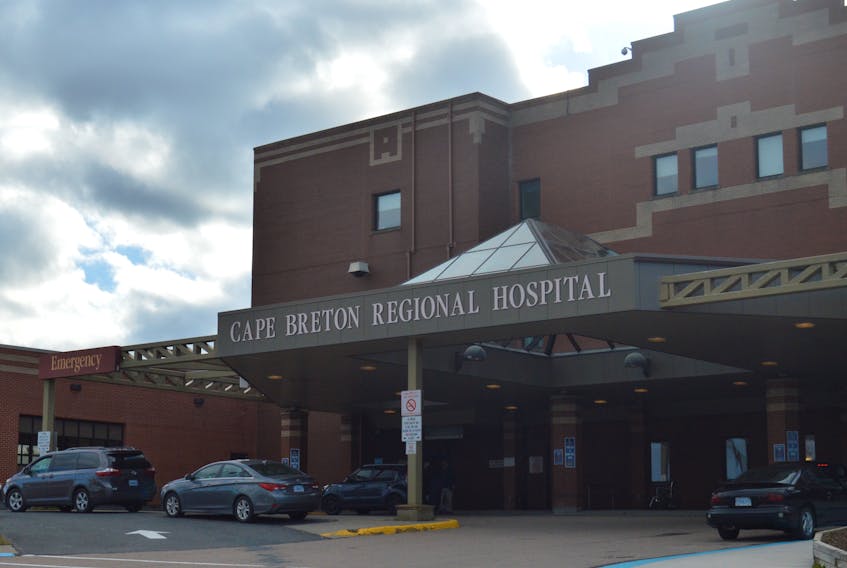SYDNEY, N.S. — Recent data from the Canadian Institute for Health Information (CIHI) indicates hospitals within the Cape Breton Healthcare Complex have been recording death rates much higher than the national average.
In 2019-20, the Cape Breton Healthcare Complex recorded a Hospital Standardized Mortality Ratio or death rate ratio of 143. That’s compared to the national average of 95 for Canada over the same time period. In the past five years, the complex has consistently been above the national average with 124 in 2015-16, 133 in 2016-17, 158 in 2017-18 and 133 in 2018-19.
Yet, those numbers may not be telling the whole story.
Joseph Amuah, CIHI manager of the Your Health System said they deal with data that may not take every factor into consideration so those rates may not explain the entire situation.
“We are not on the ground so we don’t have the local context into what the situation is,” Amuah told the Cape Breton Post. “We just have the data and we know that hospitals specialize in different senses. They have different populations so because of that, we do not recommend the ranking of the hospitals. So it is not a measure intended to rank hospitals. It is to help hospitals to look at their own results year after year.”
While the expected number of deaths for the 2019-20 period in complex hospitals was 294, with a ratio of 143, an additional 126 patients died after being admitted to hospital with conditions that should have been survivable. And that’s part of the problem of these statistics, according to the president of the Cape Breton Medical Staff Association.

Dr. Margaret Fraser says the figures are disappointing and do nothing to attract further medical personnel to the area. She and other physicians have formed a group to look at ways to improve the numbers. But there are some situations that can’t be easily rectified and because of that, the high mortality rates may remain.
For example, a person may have a blood clot in their leg but because there is no full-time vascular surgeon here, that person would have to be sent to Halifax. Because of the transportation delay, that person may end up dying or losing their leg, situations that might have been avoided if there had been access to a vascular surgeon locally.
As well, certain types of heart attacks can only be dealt with in Halifax but if bad weather prevents a patient from being transported, the person could also die before being treated, something that might not happen if they took the heart attack in Halifax.
“We live on an island with a fairly blustery climate so sometimes you’ll have your heart attack and everything is a go to get you to Halifax, but we just can’t get you off the island,” says Fraser. “And that, unfortunately, has consequences for the recovery of that individual so there are factors like that that I don’t think are reflected in the CIHI data.
“It’s important when you’re looking at something like that, that you realize it’s not capturing everything That is not to say that there’s not room for improvement at our hospital because there most certainly is.”
The lack of key medical staff and equipment is something that needs to be dealt with since it is adversely affecting people’s lives, says Fraser.
“It’s something that needs to be sorted out because that counts into that whole morbidity/mortality issue that we’ve been talking about,” says Fraser. “There are clinics here but sudden onset stuff needs to be dealt with because we’re having poor outcomes because of the lack of someone on the ground.”
Fraser hopes a local physicians group will get access to the raw data from Nova Scotia Health from which the CIHI report was derived.
“So we’re hoping to look and see where we should perhaps be applying pressure to make those improvements and making suggestions about what can be improved. Because we are aware that there are things that could be improved in our local area that would improve the health of all Cape Bretoners and we need to do that.”
While the data from CIHI shouldn’t be used to rank hospitals, Amuah says much can be learned from it.
“Health care is complex and a lot of things are taken into account,” says Amuah. “We always recommend that you look at several indicators, not just one. Mortality rates, sepsis — the bottom line is that these are supposed to help ask the questions and then see how this can be improved — it’s more for quality improvement.”
Fraser says her physicians group plans to do just that.
“We are going to look at this and see what we can do to make this better.
“The take-home is that we are aware.”
Nova Scotia Health has not yet commented on the CIHI numbers but is expected to do so on Monday.
Elizabeth Patterson is a health reporter at the Cape Breton Post.









